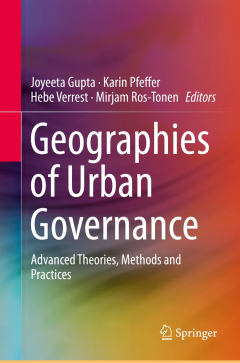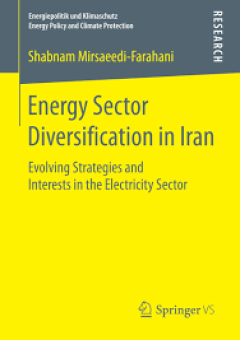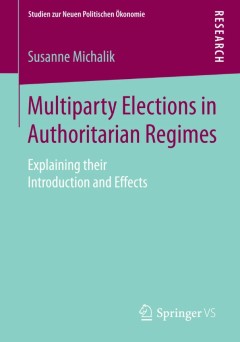Filter by

Geographies of Urban Governance
With a current population inflow into cities of 200,000 people per day, UN Habitat expects that up to 75% of the global population will live in cities by 2050. Influenced by forces of globalization and global change, cities and urban life are transforming rapidly, impacting human welfare, economic development and urban-regional landscapes. This poses new challenges to urban governance, while em…
- Edition
- -
- ISBN/ISSN
- 978-3-319-21271-5
- Collation
- XXIX, 235
- Series Title
- -
- Call Number
- 330 GEO

Energy Sector Diversification in Iran Evolving Strategies and Interests in t…
Shabnam Mirsaeedi-Farahani analyzes Iran’s interests in diversifying its energy sector, specifically electricity generation and consumption, between 1990 and 2011. She examines the policy discussions in the Iranian Parliament as well as policy development and implementation with respect to the electricity sector. One of the geopolitically crucial areas for both Iran’s domestic development a…
- Edition
- -
- ISBN/ISSN
- 978-3-658-11284-4
- Collation
- 52 b/w illustrations, 33 illustrations in colour
- Series Title
- -
- Call Number
- -

Multiparty Elections in Authoritarian Regimes
Susanne Michalik analyzes why authoritarian regimes allow for multiparty elections and how they affect political outcomes. Even though their introduction rarely leads to a change in power, such elections should not be regarded as mere window-dressing. She argues that competitive elections are installed to deal with a split among the incumbent elite and to facilitate the formation of a new rulin…
- Edition
- 1
- ISBN/ISSN
- 978-3-658-09510-9
- Collation
- XII, 148
- Series Title
- Studien zur Neuen Politischen Ökonomie
- Call Number
- -

Emerging Economies During and After the Great Recession
The International Papers in Political Economy (IPPE) series explores the latest developments in political economy. This twelfth volume presents a collection of eight papers, analysing the emergence and economic problems of the emerging economies during and after the international financial crisis of 2007–8 and the subsequent Great Recession. The contributions range from an analysis of the …
- Edition
- 1
- ISBN/ISSN
- 978-1-137-48555-7
- Collation
- XIV, 318
- Series Title
- -
- Call Number
- -
 Computer Science, Information & General Works
Computer Science, Information & General Works  Philosophy & Psychology
Philosophy & Psychology  Religion
Religion  Social Sciences
Social Sciences  Language
Language  Pure Science
Pure Science  Applied Sciences
Applied Sciences  Art & Recreation
Art & Recreation  Literature
Literature  History & Geography
History & Geography